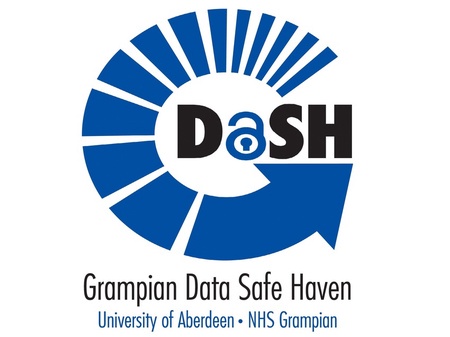This summer I have worked as a Data Analyst intern for Grampian Data Safe Haven (DaSH) which works in collaboration with the National Health Service and the University of Aberdeen. DaSH processes and links health data from various NHS servers and securely sends it to the authorized clients for research purposes. My role included data collection, anonymization, data cleaning and producing reports published on the Health Data Research UK (HDRUK) website for specialized and public use. The health data contained all the information from the Electronic Patient Records (EPRs) which is all the personal and medical details that are input into the system during a doctor’s appointment or during a hospital stay. The projects I worked on include : Aberdeen Maternity and Neonatal DataBank (AMND); BADGERNET; Study of Eczema and Asthma To Observe the influence of Nutrition (SEATON); Study of Trends in Obesity in North East Scotland (STONES), and Aberdeen Children of the 1950s (ACONF). This opportunity helped me to develop transferable skills and provided me with invaluable job experience that greatly widened my employment prospects.
A little about my degree
I am starting my 4th year of an MA Psychology and Philosophy Joint Honours degree. Seemingly unrelated fields to data science and analysis. Nevertheless, as it turned out my educational background was a crucial steppingstone and a proof that we are not bound only to the jobs strictly within the field of our expertise, as knowledge, skills and qualities can be constantly build on. Considering how competitive today’s job market is, it is important to branch out. Relevant experience is important for reaching specific future goals, however searching for new, sometimes unexpected paths of development can be as beneficial. My internship showed me that I am not limited to only one field of study since a lot of jobs are actually interdisciplinary and utilize a broad array of skills that I, and probably you, already have but just need to be transformed or adjusted depending on the context. For example, problem-solving, critical thinking, logical reasoning, teamwork, good interpersonal skills and communication – they are all considered transferable skills.
Should you apply?
At first, I felt out of place and felt quite apprehensive about something I have not done before, especially in a professional setting. However, since the team decided to hire me, I had to believe that what they saw in me was enough. And it was! So, if I had any advice to my fellow students, it would be to go out of your comfort zone, actively look for opportunities and be confident in your own abilities. Before applying, analyse what is your current skill set and try to rehearse, either in real life or in your head, how you would use it in different disciplines and situations. Also, always have a back-up plan and do not get discouraged if you are rejected at first. Once I started working, I received appropriate training and my initial stress was quickly alleviated by very supportive team and my line manager who would clearly set out the tasks and goals for me and was always available to answer any questions I had.
Skills you will need
To be a competent employee is to realise that we can always grow and improve, and that adaptation is a key component of any successful career. As a part of my degree in psychology I already had a lot of experience with handling data, both qualitative and quantitative using statistical software such as SPSS. This made me see beyond the numbers and interpret health data through a unique lens of human based/behavioural approach which allowed me to see patterns and integrate them to critically analyse the health data. The sheer fact that I had already designed and conducted my own research projects made me look at the data from a first-hand perspective of a researcher rather than just a raw data observer which facilitated the whole process.
In my own time I have studied basic Python programming and tried to expand my Excel skills. This turned out be to be invaluable as it enabled a smooth transition to using SQL and R which are both programming languages used in data analysis. For anyone thinking about this job post, I would propose to have a good grasp of Excel and constantly perfect it because there are functions that are immensely helpful but not used very often in regular academic work.
If you think about career in data mining, I would also advise to learn at least one programming software apart from Microsoft Excel, such as Python, R, SQL or Tableau since these are the most commonly used in data analysis. They make the whole data process more automated and increase the efficiency of the workflow. A good grasp of statistics can also come in handy when we have to actually study what overarching correlations can be seen across data sets.
Final thoughts
By now, it should not not come as a surprise that for me, apart from thinking about carer in Clinical Psychology as initially, now I am also open to seek out data analysis job opportunities. The goal of the University of Aberdeen Summer Internships Programme is to help us figure out what career would be best suited for us, but in order to do so you have to make the most of the opportunities provided.
About the role of a Data Analyst

2022-10-01
Published by Students Infohub, University of Aberdeen


Comments
There are currently no comments for this post.
